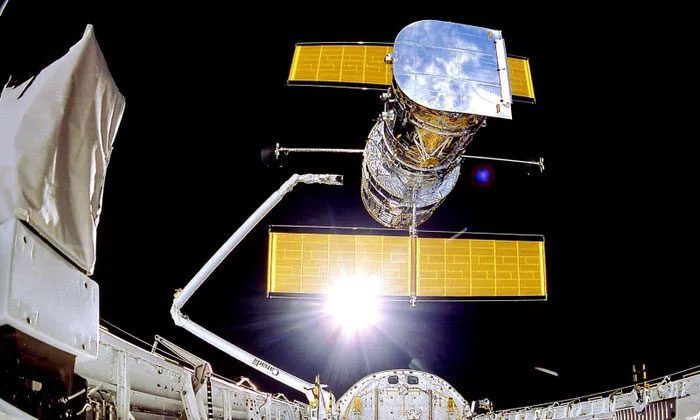On September 29, officials from the National Aeronautics and Space Administration (NASA) announced that SpaceX, the aerospace technology company founded by billionaire Elon Musk, will collaborate with NASA to conduct research aimed at exploring how to use SpaceX’s Dragon spacecraft to raise the orbit of the Hubble Space Telescope.

Hubble Space Telescope. (Photo: NASA)
Speaking to the press, Thomas Zurbuchen, NASA’s Associate Administrator for the Science Mission Directorate, stated that SpaceX will cover all costs for the six-month research study. Several months ago, SpaceX proposed to NASA to investigate how a commercial spacecraft could assist in raising the orbit of the Hubble Telescope, potentially extending the operational life of the telescope.
Jessica Jensen, Vice President of Customer Operations at SpaceX, mentioned that this study will analyze whether the Dragon spacecraft needs modifications to dock with and elevate the Hubble Telescope’s orbit, as well as consider if astronauts will need to participate in this mission. Jensen confirmed that discussions are ongoing at this stage.
Meanwhile, NASA indicated that research teams will gather data to determine if the Dragon spacecraft can safely dock and move the Hubble Telescope to a more stable orbit.
Nasa officials also emphasized that the agreement with SpaceX is focused solely on research funded by the company and does not pertain to NASA’s future plans for maintaining the Hubble Telescope.
The Hubble Telescope was launched into space in 1990 and operates in Earth’s orbit at an altitude of about 610 km, approximately 220 km higher than the orbit of the International Space Station (ISS). This telescope has captured stunning images and paved the way for significant discoveries, such as the age of the universe and new moons around Pluto.
In the early 2000s, Hubble underwent multiple servicing missions as part of NASA’s Space Shuttle Program. Since the program’s retirement, astronomers have explored various ways to maintain this aging yet still operational telescope. However, no plans have been implemented to date.





















































